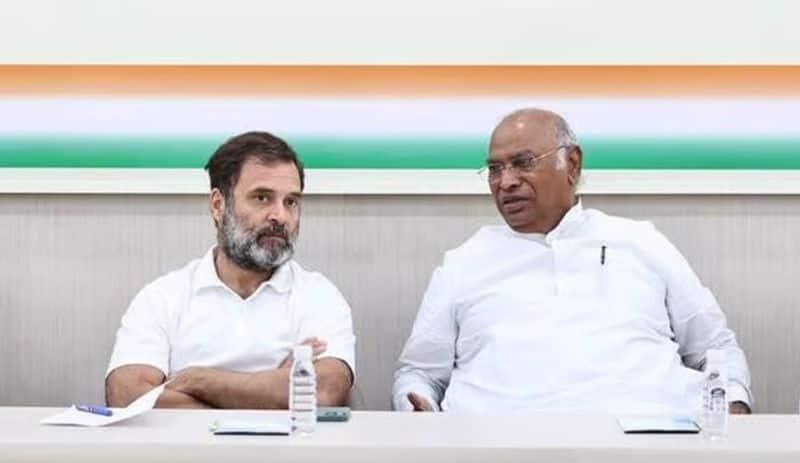
Explained: From Infighting To Overconfidence... Why Congress Faced 3 Humiliating Defeats
Asianet Newsable spoke to psephologist Amitabh Bhushan to understand what went wrong with the Congress that failed to retain its two crucial states and couldn't manage to encash the anti-incumbency factor against the BJP govt in Madhya Pradesh under Shivraj Singh Chouhan.
Rajasthan
According to Amitabh Bhushan, Congress' internal factionalism played a greater role in keeping it away from the power corridor of Jaipur.
While highlighting that change in guard after every five years has been a“riwaj” or“tradition”, Bhushan said that the Congress had a chance to change that tradition because of the populist measures that Ashok Gehlot had taken.
The BJP also had internal fights over leadership as Vasundhara Raje was unhappy with the hierarchy but Prime Minister Modi and Union Home Minister Amit Shah pacified her days before the elections.
One of the major reasons for the rout of Congress in Rajasthan, according to Bhushan, was the conflict between Ashok Gehlot and Sachin Pilot. Pilot, who belongs to the Gujjar community, could not manage to garner his caste's votes for the party. This was in contrast to the 2018 assembly elections when the Gujjars had voted en-masse for the Congress party hoping that Pilot would be at the helm in the state.
The psephologist also said Eastern Rajasthan, which has a sizable population of Gujjars, did not vote for Congress this time as they believed that their caste representative would not become the chief minister.
The Rajputs, who were disenchanted with Vasundhara Raje over the killing of gangster Anand Pal Singh, returned to the saffron fold. The Jats, who have been very vocal and supportive of the Congress party, have maintained distance from the party after their leaders were sorted out over a decade back.
According to Bhushan, polarization has also played a significant role. This helped the BJP more than the Congress. The Scheduled Castes voted for the BJP instead of going for the Mayawati-led BSP or other outfits.
Madhya Pradesh
About a month back, the BJP was nowhere in the race and even the party's central and state leadership were of the view that they were staring at a rout this time due to anti-incumbency.
Itarsi-based social activist Pintu Dubey said that state Congress president Kamal Nath's overconfidence, lackadaisical campaign, poor candidate selection, infighting and centralisation of power were the major reasons for the defeat.
He also said that Kisan Samman Nidhi Yojna and Ladli Behna Yojna were appreciated by the masses. "The election was on November 17 and the women got their amount credited in their bank account on November 10. This was also a major reason for Shivraj Singh Chouhan's comeback. The women thought if Shivraj would not come to power then it would be stopped," Dubey said.
According to Amitabh Bhushan, the other reasons that led to the Congress downfall included its inability to manage the rebel candidates, and not taking regional outfits in areas like Bundelkhand and Baghelkhand onboard. "Had there been an alliance with the Samajwadi Party and other tribal parties, the results would have been different," he observed.
For the BJP, fielding senior leaders, Union ministers and Members of Parliament like Narendra Singh Tomar, Prahlad Singh Patel, Faggan Singh Kulaste and Kailash Vijayvargiya, among others worked well for the party.
Above all, PM Modi has his own magic, he said.
Chhattisgarh
Amitabh Bhushan equated the Congress party's situation in Chhattisgarh with Rajasthan. Here too, there was infighting between Chief Minister Bhupesh Bhagel and his deputy, T S Singhdeo.
The psephologist was also of the view that Baghel's overconfidence must have led to poor planning in electioneering.
Legal Disclaimer:
MENAFN provides the
information “as is” without warranty of any kind. We do not accept
any responsibility or liability for the accuracy, content, images,
videos, licenses, completeness, legality, or reliability of the information
contained in this article. If you have any complaints or copyright
issues related to this article, kindly contact the provider above.


















Comments
No comment